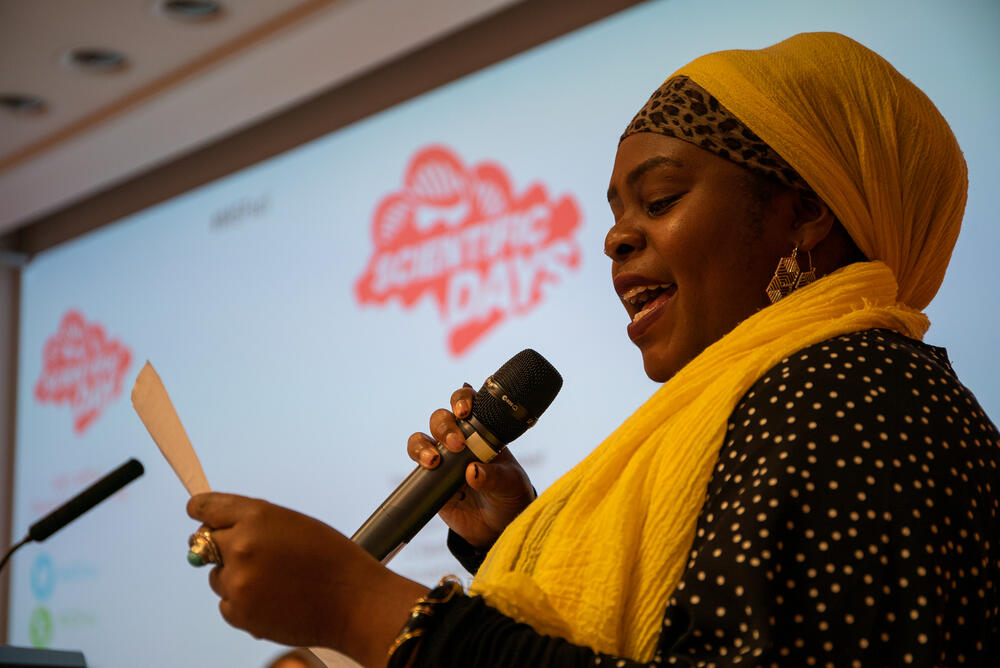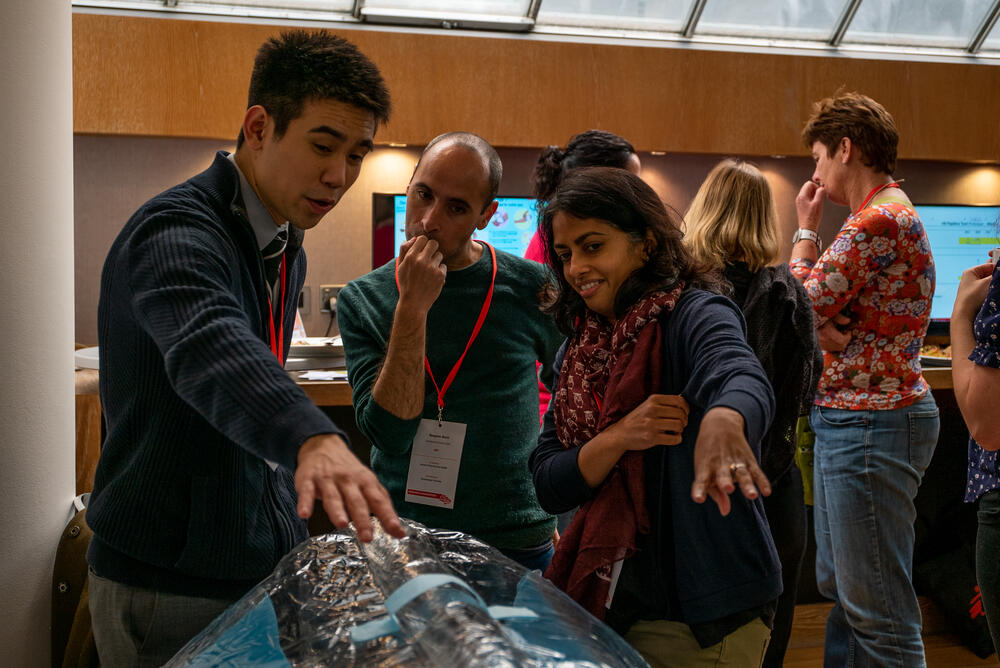MSF’s Scientific Days: Patients, partnerships and sustainable practice
Every year the field of global health presents us with new opportunities and unexpected challenges. Sharing knowledge in these fast-changing times has never been more important.
The overall aim of MSF’s annual conference series, the MSF Scientific Days, is to scrutinise our work, review how well our activities are working and ultimately improve the quality of care that MSF is providing to patients and communities.
This year’s MSF Scientific Days – International, which marks the 18th edition, will be taking place from May 18-20. Last year’s online event was watched by over 2,500 people across 108 different countries.
This year’s event will adopt a similar format and will allow researchers, practitioners, academics, patients and communities from all around the world to come together. Regional events in Asia, Latin America and Southern Africa will follow later in the year.
In the lead up to this year’s event, we revisit and reflect on three projects presented last year and ask: how is our research impacting patients, communities and MSF at an organisational level?
Understanding patient needs
Little is known about how people with advanced HIV, and their caregivers, experience and perceive palliative care.
Last year we heard about the lack of understanding and awareness around care available for people living with advanced HIV in Bihar, India.
Through interviews and discussions, MSF researchers were better able to understand the experiences of these patients and adapt the provision of care to their needs.
In the advanced HIV inpatient ward, there is now a separate space dedicated to providing palliative care, and there is an improved focus on addressing the socio-emotional and mental health needs of patients and their relatives and caregivers.
This year’s Scientific Days will have a session dedicated to understanding the challenges in HIV and TB, where we will shed light on understudied areas and discuss findings that can impact the lives of people living with HIV and TB, as well as their relatives and caregivers.
Working with communities
Around one in three women globally experience sexual or intimate partner violence, but in many settings, women do not seek help.
At last year’s Scientific Days, we heard the findings from a study that explored why this might be the case in Haiti and India. While survivors expressed their need for care, many women were ashamed and fearful of the stigma and social consequences.
Further dissemination of this research beyond Scientific Days happened through roundtable discussions across MSF and other organisations, and feedback to the community has meant that both pathways to care and health promotion messages could be adapted.
In India, advances in the model of care has seen the implementation of a community health post for sexual and gender-based violence, and greater collaboration with community workers from the Ministry of Health.
Sharing knowledge and raising awareness of a sensitive topic such as sexual and gender-based violence is essential to translate research into practice.
You can find out more about the approaches we are taking to learn from communities, and how we are bridging gaps to communities and patients, during both our Research and Innovation Days at this year’s Scientific Days.
Adapting our organisation
In 2020, we heard initial insights into MSF’s Environmental Impact Toolkit, a simple tool that allows MSF offices and projects to measure their carbon-producing activities. By systematically monitoring these activities, teams can decide on practical measures to reduce their environmental footprint and monitor improvements.
Use of the toolkit has expanded rapidly. From only five MSF projects piloting it in 2019, to 14 by the end of 2020 and now over 50 projects or offices either using the toolkit or in the planning stages. The toolkit has also expanded into a wider Climate Smart MSF initiative.
Toolkit users have noted some immediate changes to environmental practices, from reduced flying even before the COVID-19 pandemic, to implementation of digital processes and advocacy around a greener supply chain. While it is challenging to evaluate the impact of the toolkit on patients, making small steps to improve efficiency and sustainability enables MSF to positively contribute to planetary and human health globally.
Find out what we have learned from the 14 projects that have put the toolkit into practice, and the next steps for this project, by joining us at this year’s virtual Scientific Days. Follow our Twitter channel @MSFsci, post your comments and questions using the hashtag #MSFsci, take part in our poster competition, and help us make this a true conference without borders.
MSF Scientific Days 2021
MSF Scientific Days bring together researchers, practitioners, academics and patient representatives to catalyse improvements in the quality of care provided to patients and communities at risk.
By supporting research and innovation in our projects, MSF aims to improve outcomes, find efficiencies and create a culture of best practice, constantly improving the standards of care provided to our patients.
MSF Scientific Days International 2021 will take place online from 18 to 20 May 2021.


